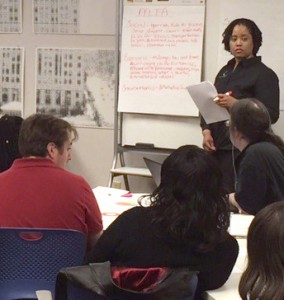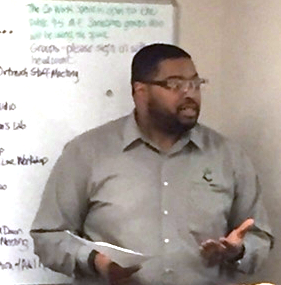By Sherry Hayden
Have you noticed restorations on formerly abandoned, historic buildings west of Downtown Flint? What’s going on in the Swayze Building on westbound Court Street? Maybe you’ve noticed the transformation of Oak Street School into senior apartments on eastbound W. Fifth Street.
While any construction at this particular time in Flint is interesting, the bigger story is the way it is being done.
Years ago, Glenn and Essence Wilson dreamed of an improved quality of life for residents of their hometown. They saw a need for economic development and affordable, healthy housing solutions – and they wanted to be kind to the environment. For three years, they built the foundations of Communities First, Inc. They searched for a good business evaluation tool and found it in the concept of the Triple Bottom Line.
You’ve heard businesspeople talk about “the bottom line,” which refers to profit. But practical visionaries consider the bigger picture. They examine the potential social and environmental effects of business decisions. “The greenest building is the one left standing,” Essence said to a full house at the Innovation Incubator on Wednesday, April 6.
Taking the Triple Bottom Line into consideration actually promotes the long-term health and sustainability of a business – and a community. It pays off in multiple ways.
Glenn told entrepreneurs they will be tempted to take on projects for profit only. He advised, “Know who you are and stay true to it.” The Communities First Inc. model focuses on three main areas:
- Economic development, which includes securing funding for mixed-use development projects, and hiring local workers;
- Green Life Program, encouraging environmental practices in business and homes; and
- Culture Shock, promoting arts and culture in the community.
In their presentation, they examined other local socially-minded organizations to identify the social, economic and environmental impacts. While there are important keys to implementing a successful sustainability model, Glenn said entrepreneurs should tailor plans to their own situations. That usually means identifying the primary focus of your efforts. For instance, someone may put environmental health first, but will need to consider the community and also find a way to make it sustainable through an income stream. “It’s important not to try to do too much too quickly,” Glenn said. “Build your foundation and work your way up.”

